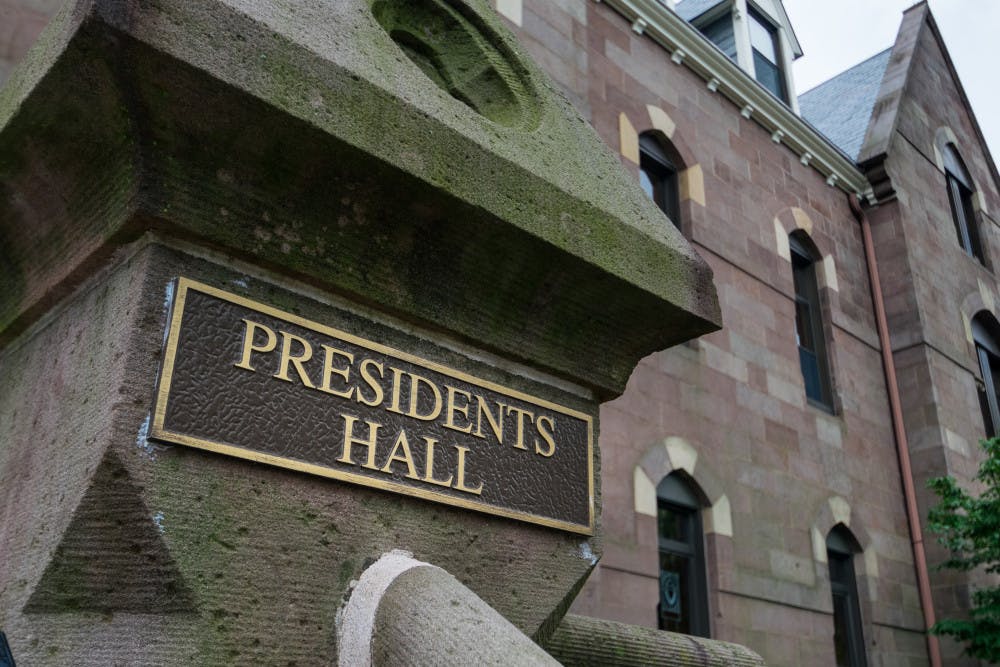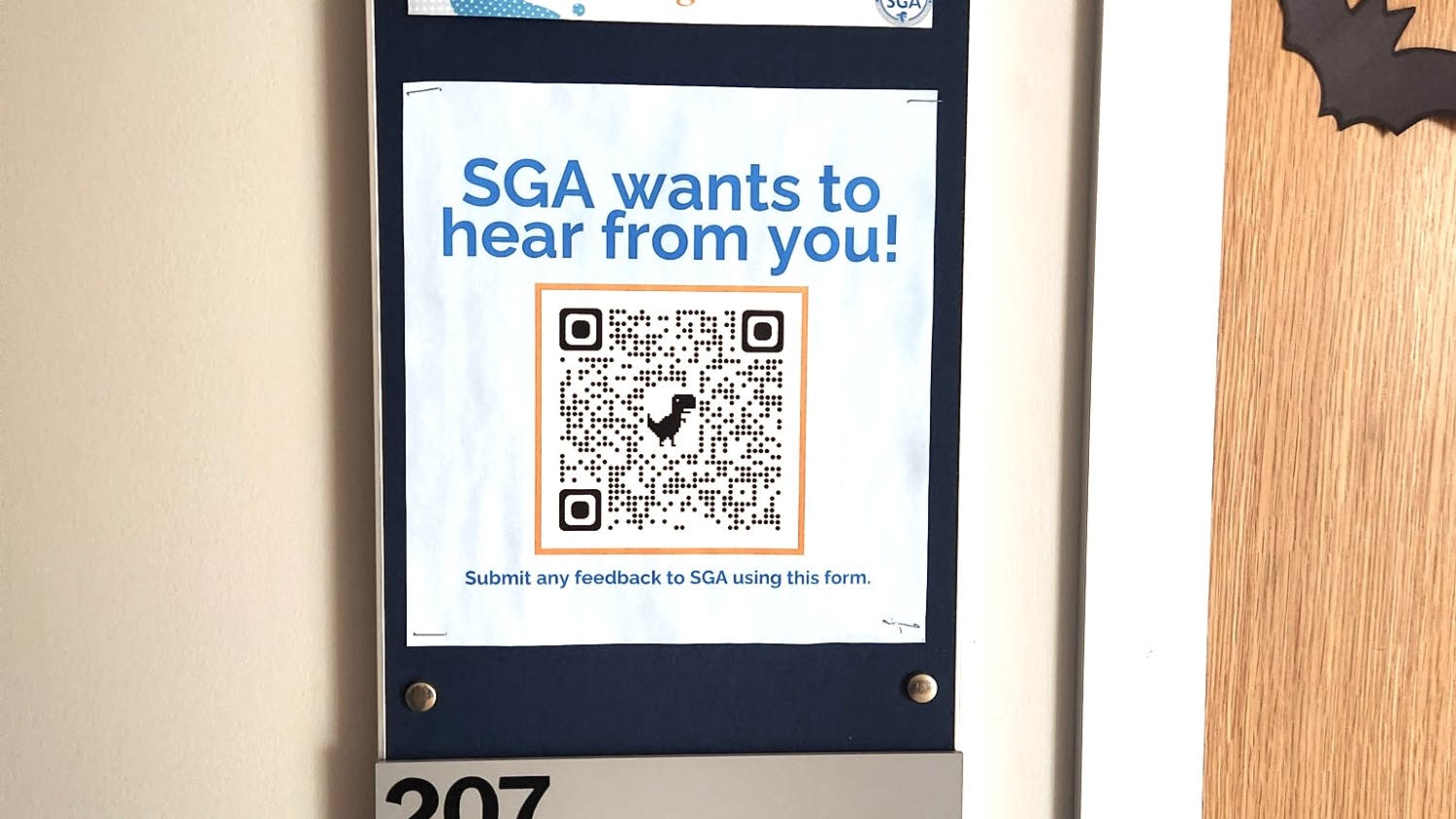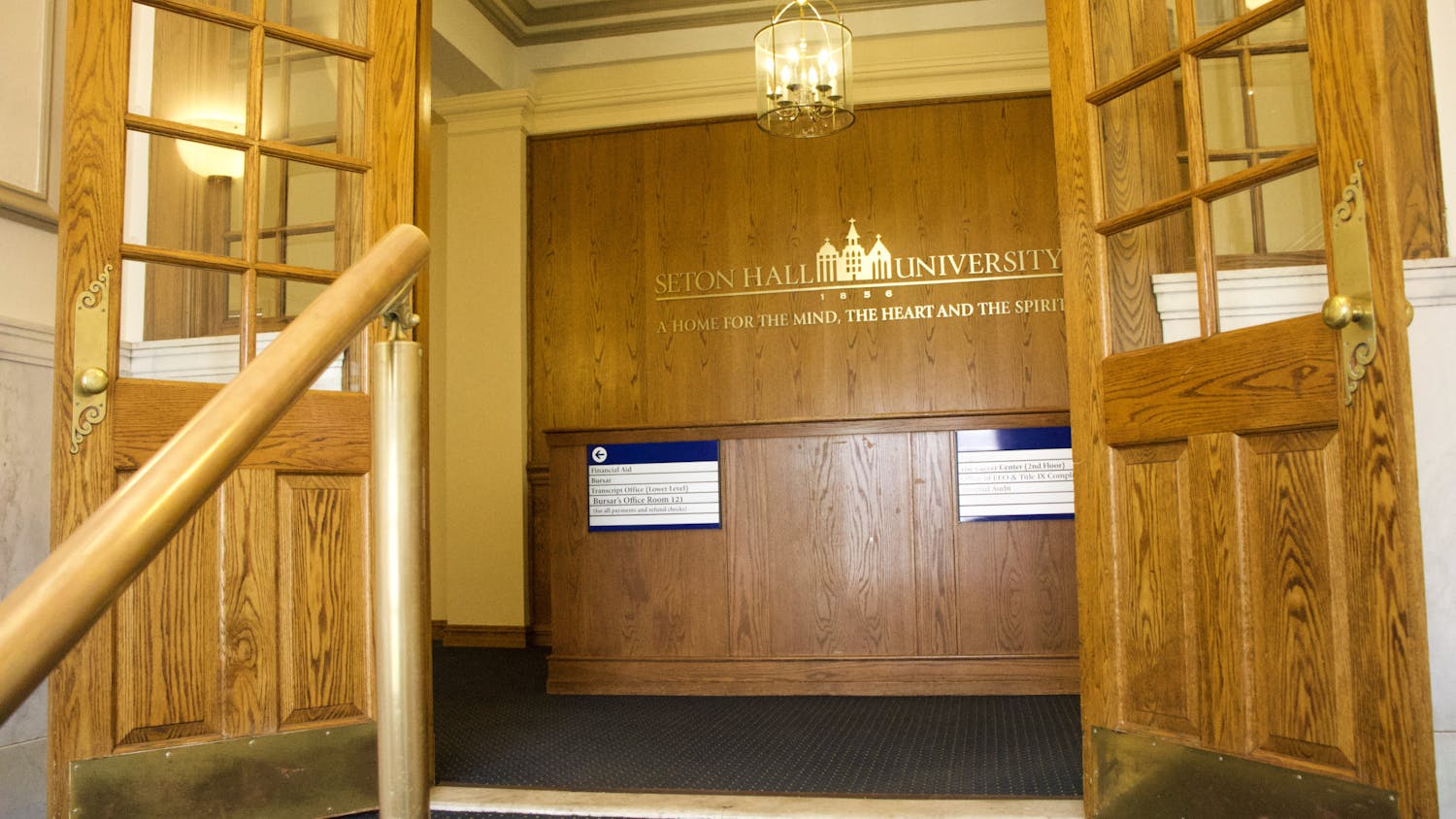After nine days of occupying Presidents Hall, the Concerned 44 student activist group abruptly ended their sit-in after administrators and student organizers agreed to return to the negotiating table to work together on fulfilling their demands.
[caption id="attachment_25011" align="aligncenter" width="838"] File photo[/caption]
Interim President Mary Meehan announced the end of the sit-in in a campus-wide email in which she reaffirmed the University’s commitment to continuing the “ongoing dialogue” and promised future meetings with representatives of Concerned 44 “to clearly define the plan moving forward to create a more inclusive community at Seton Hall.”
“Members of the faculty and administration are continuing to meet with the leaders of Concerned 44 to discuss their demands, and to determine actions that will further our shared desire to be a more inclusive educational environment for all who are members of the Seton Hall community,” Meehan said.
“I look forward to continued dialogue and action steps that result in an even more effective learning experience for all of our students,” she continued. “Our resources are limited, but we are committed to strengthening our academic offerings within the structure of our shared governance. The SGA has also voiced its support of working with Concerned 44 and I am confident that together we can accomplish what none of us can do on our own.”
The end of the protest comes as a surprise following an uneasy public meeting that took place last Wednesday between University leadership and Concerned 44 organizers. The tension came to a head when Vice President of Student Services Dr. Tracey Gottlieb “chuckled” — as some observers put it — upon the suggestion of her sending out an email detailing the altercation that took place between SHU faculty member Dr. William James Hoffer and protester Emani Miles on Oct. 29, which invited shouts from the audience.
Gottlieb responded that she merely laughed at the idea of sending out yet another email to the student body, not at the nature or the severity of the incident, and further apologized to Miles.
Despite the tension, in a statement released on Friday evening, the Concerned 44 expressed a willingness to continue working with administration.
“The Concerned 44 would first like to acknowledge the efforts that the university, faculty, and administration have made to respond to our demands…While we were impressed with the degree to which the university has gone to meet our demands, there are still some aspects that must be included in order for us to truly feel as if Seton Hall University is a community suited for all people.”
The statement, available in its entirety on Instagram (@shu_concerned44), then goes on to detail the University’s responses to the various demands and asserts that, in addition to the amnesty that has already been granted to student protestors, amnesty must also be given to professors and faculty members who took part in the protest.
In an email interview, Concerned 44 organizer Taylor Newkirk told The Setonian that the group decided to end the protest because they believed the University had begun to take the demands seriously, thereby achieving the goal of the demonstrations.
“Seton Hall has gotten enough to worry about as a result of our week-long sit in, so I do not foresee them dragging their feet when working with us any time soon,” she said.
Newkirk did leave open the possibility of the protests resuming should negotiations with the University begin to stall again, however. “We are not asking for anything impractical,” Newkirk pointed out. “We should not have to protest, but if that is what’s necessary, then that is what we’ll do.”
Students around campus generally had positive reactions to the developments between administration and the Concerned 44.
John Ruela, a freshman Diplomacy major, expressed satisfaction in the progress that had been made.
“Although I am not directly affected by most of the changes at hand, I am very happy to hear the students voices are being heard,” he explained. “The student input into the faculty searches is something that does affect me, and I am more than happy to hear that students are now able to influence the hiring process of our own educators.”
Stephen Hoffman a sophomore political science major said.
“I think the end of the sit in is a good thing. The University’s reply to the demands was more than sufficient, and even quite generous,” Hoffman said.
“I think that returning to the negotiating table is the best thing to do for both sides now so they can further work to find common ground.”
Nicholas Kerr can be reached at nicholas.kerr@student.shu.edu.
File photo[/caption]
Interim President Mary Meehan announced the end of the sit-in in a campus-wide email in which she reaffirmed the University’s commitment to continuing the “ongoing dialogue” and promised future meetings with representatives of Concerned 44 “to clearly define the plan moving forward to create a more inclusive community at Seton Hall.”
“Members of the faculty and administration are continuing to meet with the leaders of Concerned 44 to discuss their demands, and to determine actions that will further our shared desire to be a more inclusive educational environment for all who are members of the Seton Hall community,” Meehan said.
“I look forward to continued dialogue and action steps that result in an even more effective learning experience for all of our students,” she continued. “Our resources are limited, but we are committed to strengthening our academic offerings within the structure of our shared governance. The SGA has also voiced its support of working with Concerned 44 and I am confident that together we can accomplish what none of us can do on our own.”
The end of the protest comes as a surprise following an uneasy public meeting that took place last Wednesday between University leadership and Concerned 44 organizers. The tension came to a head when Vice President of Student Services Dr. Tracey Gottlieb “chuckled” — as some observers put it — upon the suggestion of her sending out an email detailing the altercation that took place between SHU faculty member Dr. William James Hoffer and protester Emani Miles on Oct. 29, which invited shouts from the audience.
Gottlieb responded that she merely laughed at the idea of sending out yet another email to the student body, not at the nature or the severity of the incident, and further apologized to Miles.
Despite the tension, in a statement released on Friday evening, the Concerned 44 expressed a willingness to continue working with administration.
“The Concerned 44 would first like to acknowledge the efforts that the university, faculty, and administration have made to respond to our demands…While we were impressed with the degree to which the university has gone to meet our demands, there are still some aspects that must be included in order for us to truly feel as if Seton Hall University is a community suited for all people.”
The statement, available in its entirety on Instagram (@shu_concerned44), then goes on to detail the University’s responses to the various demands and asserts that, in addition to the amnesty that has already been granted to student protestors, amnesty must also be given to professors and faculty members who took part in the protest.
In an email interview, Concerned 44 organizer Taylor Newkirk told The Setonian that the group decided to end the protest because they believed the University had begun to take the demands seriously, thereby achieving the goal of the demonstrations.
“Seton Hall has gotten enough to worry about as a result of our week-long sit in, so I do not foresee them dragging their feet when working with us any time soon,” she said.
Newkirk did leave open the possibility of the protests resuming should negotiations with the University begin to stall again, however. “We are not asking for anything impractical,” Newkirk pointed out. “We should not have to protest, but if that is what’s necessary, then that is what we’ll do.”
Students around campus generally had positive reactions to the developments between administration and the Concerned 44.
John Ruela, a freshman Diplomacy major, expressed satisfaction in the progress that had been made.
“Although I am not directly affected by most of the changes at hand, I am very happy to hear the students voices are being heard,” he explained. “The student input into the faculty searches is something that does affect me, and I am more than happy to hear that students are now able to influence the hiring process of our own educators.”
Stephen Hoffman a sophomore political science major said.
“I think the end of the sit in is a good thing. The University’s reply to the demands was more than sufficient, and even quite generous,” Hoffman said.
“I think that returning to the negotiating table is the best thing to do for both sides now so they can further work to find common ground.”
Nicholas Kerr can be reached at nicholas.kerr@student.shu.edu.





